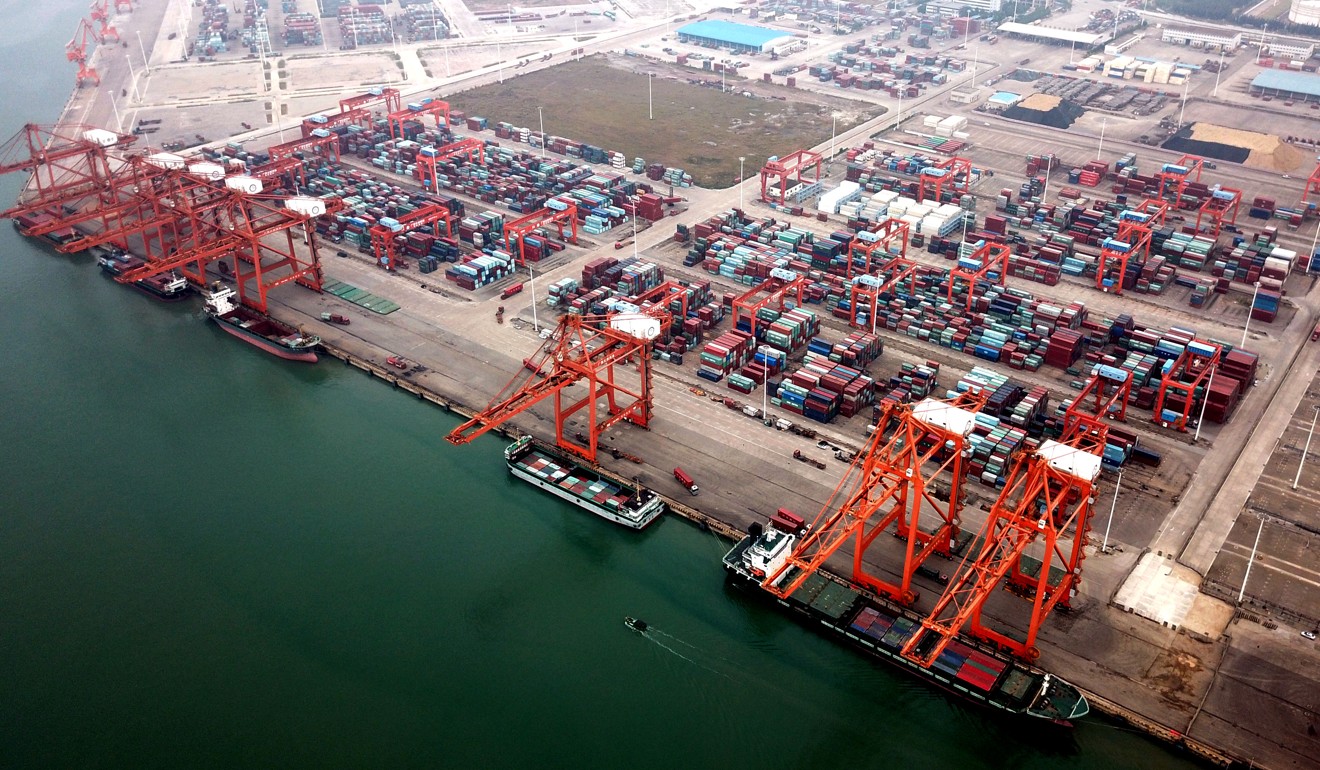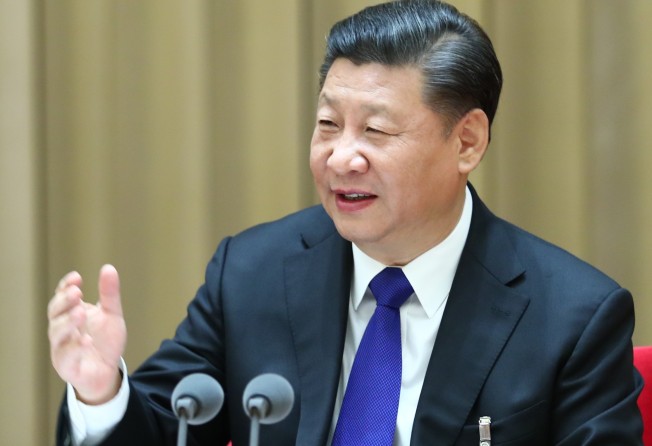
Why Xi Jinping is taking a longer view on the economy
China’s latest economic blueprint marks a change in perspective

China’s top leaders are usually focused on the next 12 months at the annual economic policymaking meeting, but this year was different.
Instead, the time frame for its key “battles” – controlling financial risk, reducing poverty and curbing pollution – was set at three years during the economic work conference in Beijing this week.
Analysts say the move shows President Xi Jinping is taking a longer-term approach to China’s outstanding problems, with greater tolerance for short-term growth fluctuations.
“With the power consolidation accomplished this autumn, it’s time for policymakers to take a longer-term perspective,” Larry Hu, head of Greater China economics at Macquarie Capital, said.
Xi cemented his power at the Communist Party congress in October, when he was elevated to the same status as late leaders Mao Zedong and Deng Xiaoping.
In 2020, Xi will reach the “midterm” of his second five-year term as leader and he is aiming to make good on the party’s promise to build “a comprehensive well-off society” by then.
“It’s no wonder they’re keen to curb the risks that have accumulated over the past five years, so that growth is more sustainable over the next five years and we don’t see a financial meltdown,” Hu said.
Beijing has been trying to avoid an economic crisis in the wake of the mid-2015 stock market meltdown that wiped US$5 trillion off China’s stock market capitalisation. But the country’s debt problem has been worsening, making its financial system more fragile.
The leadership has also vowed to push ahead with a clean-up of the financial sector. “We will promote a benign cycle from the financial sector to the real economy, to the property sector, and within the financial system, and firmly crack down on financial irregularities,” a communiqué released after the three-day conference said.
On alleviating poverty, Beijing said it would take a pragmatic approach. “We will not lower standards. We will not generate unrealistic expectations,” the communiqué said, adding that the focus would be on “motivating” specific poverty-stricken groups to pursue a better life.
Beijing again declared war on pollution, promising to reduce “substantially” emissions of the main pollutants, close down outdated industrial capacity, and do more to link energy saving and the fight for “blue sky days” to officials’ appraisals.

These three tasks – together with policies that touch on social issues, including children’s homework burden, a nursing shortage and online scams – are part of the so-called Xi Jinping Economic Thought, which emphasises quality over speed of growth.
“It reflects a change in economic management concepts,” according to Zhao Xijun, a finance professor at Renmin University.
“The economy is not just about growth. China has paid the price for its blind pursuit of GDP growth in the past decades, and the top leadership has realised that it is time to let more people benefit from the economic development.”
Bank of America Merrill Lynch economists Helen Qiao and Sylvia Sheng wrote in a note that de-emphasising the growth rate showed China was not worried about growth stability. They expected policymakers to intensify efforts on deleveraging and reducing outdated capacity in coming years.
Hu Xingdou, an independent economist in Beijing, said: “These changes are what China needs. However, I’m concerned about how concrete these policies will be, and how local officials approach them. There have already been some bad examples.”
In the past few months, a coal ban designed to tackle the chronic smog problem in the north – forcing families to convert to natural gas for heating – has seen the authorities back-pedalling as they grapple with a gas shortage that left many homes and schools without heating in freezing temperatures.
Meanwhile there has been an outcry over the mass evictions of migrant workers from Beijing in a 40-day safety campaign to clear dangerous buildings after 19 people died in a fire last month.